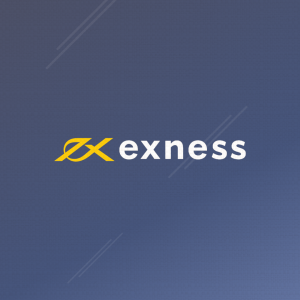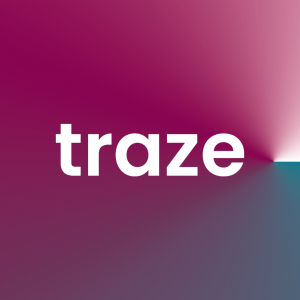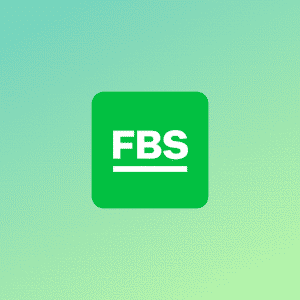
Thousands of beginner traders start by opening an account and depositing a small amount of capital to learn how to trade, see if it is for them, and, more importantly, not lose a lot of money. Let’s show you which are the best forex pairs to trade on a small account.
This article will explain the criteria you, as a trader with a small account, need to look for in the best forex pairs to trade that will potentially save you capital and give you a winning trade. You may think you know what they are, but understanding why these factors are important may surprise you.
7 Best Currency Pairs to Trade (Comparison)
| Forex Pair | Base Currency | Quote Currency | Small Account Friendly | Major Currency Pair |
| EUR/USD | Euro | United States Dollar | Yes | Yes |
| USD/JPY | United States Dollar | Japanese Yen | Yes | Yes |
| AUD/USD | Australian Dollar | United States Dollar | Yes | Yes |
| USD/CAD | United States Dollar | Canadian Dollar | Yes | Yes |
| NZD/USD | New Zealand Dollar | United States Dollar | Yes | Yes |
| GBP/USD | British Pound | United States Dollar | Yes | Yes |
| USD/CHF | United States Dollar | Swiss Franc | Yes | Yes |
What are the Best Forex Pairs to Trade?
Essentially, the best forex pairs to trade with a small account would be currency pairs that have a low spread, are popular, and are not volatile (you can predict them to a certain degree). In essence, the major forex pairs are the ones that typically provide the benefits we mentioned.
The best forex pairs to trade with a small account will be the seven major forex pairs:
- EUR/USD
- USD/JPY
- AUD/USD
- USD/CAD
- NZD/USD
- GBP/USD
- USD/CHF
These forex pairs typically have low spreads, are not volatile, and are highly liquid, giving traders who open positions the best possible chance of a winning trade.
1. EUR/USD
The EUR/USD, also known as the “fibre,” is the most popular forex pair in the world, as it represents the two largest economies, the United States and the Eurozone. Trading this major currency pair offers several advantages for small forex accounts, including high liquidity, low spreads, and abundant information available for beginners.
One of the key reasons the EUR/USD is considered the best forex pair for small accounts is its high liquidity. As the most traded currency pair, it accounts for a significant portion of the global forex trading volume. This high liquidity ensures tight spreads, which are essential for minimizing trading costs and maximizing profit potential for small account holders.
Additionally, the EUR/USD pair’s popularity makes it a top forex pair for beginners, as there is an abundance of information, analysis, and expert insights available online. This wealth of information helps new traders develop effective trading strategies and better understand market dynamics.
The value of the EUR/USD pair is primarily influenced by political and economic factors affecting the US dollar and the euro. By closely monitoring these factors, traders can make informed decisions and capitalize on market movements. For instance, if the Federal Reserve intervenes in the market to strengthen the dollar, the EUR/USD pair’s value is likely to decline.
Given its low volatility compared to other major currency pairs, the EUR/USD is suitable for small account holders seeking a more stable trading environment. While the pair does experience price fluctuations, it is generally less susceptible to sudden, drastic changes than more volatile pairs.
By focusing on the EUR/USD and other similar major currency pairs, traders with small accounts can make informed decisions and invest wisely in the forex market. Therefore, the EUR/USD currency pair is an ideal choice for small forex account holders due to its high liquidity, low spreads, and relative stability. The abundance of information available for this popular forex pair also makes it an excellent option for beginners looking to develop their trading skills and strategies.
2. USD/JPY
The USD/JPY, or the “gopher,” is a major currency pair representing the exchange rate between the United States dollar and the Japanese yen. This pair is popular among small forex account holders due to its low spreads, relatively predictable price movements, and the central bank of Japan’s intervention in the market.
One of the key advantages of trading the USD/JPY pair for small forex accounts is the low spreads typically associated with this pair. Low spreads are crucial for minimizing trading costs and maximizing profit potential, especially for traders with limited capital.
Furthermore, the USD/JPY is known for its more predictable price movements compared to other currency pairs. This predictability is attributed to the fact that the Bank of Japan often intervenes in the forex market by buying and selling the yen to maintain exchange rates and promote a competitive export market. This intervention results in a “dirty float” regime, where market forces do not entirely determine the yen’s value.
Trading the USD/JPY currency pair allows traders to capitalize on these more regular fluctuations if they can buy and sell at the right time. The predictability of the pair’s price movements can be particularly beneficial for small account holders seeking to reduce their exposure to risk and volatility.
Additionally, the USD/JPY has become a popular way for traders to gauge the relationship and tensions between the United States and Asian regions, especially in the areas of technology and e-commerce. By closely monitoring these geopolitical factors, traders can gain insights into potential market movements and develop more informed trading strategies.
In summary, the USD/JPY currency pair is an appealing choice for small forex account holders due to its low spreads and relatively predictable price movements. By focusing on the USD/JPY and other similar major currency pairs, traders with small accounts can make well-informed decisions and invest wisely in the forex market, maximizing their chances of success and growth in their trading journey.
3. AUD/USD
The AUD/USD, commonly referred to as the “Aussie,” is a major currency pair representing the exchange rate between the Australian dollar and the United States dollar. The pair accounts for 5.4% of daily forex trades and is popular among traders, especially those with small forex accounts, due to its high correlation with commodity prices.
Australia is one of the world’s leading exporters of coal and iron ore, making its economy and the value of the Australian dollar heavily reliant on commodity prices. As a result, trading the AUD/USD currency pair allows forex traders to gain exposure to the commodity market without trading futures contracts directly. A slump in commodity prices would negatively impact the Australian economy, causing the value of the Australian dollar to decrease and the AUD/USD price to fall, as fewer US dollars are needed to purchase an Aussie dollar.
When trading the AUD/USD pair in a small forex account, it is essential to monitor commodity prices closely, particularly those vital to the Australian economy. Additionally, traders should pay attention to announcements from the Reserve Bank of Australia and the Federal Reserve, as these can significantly impact the currency pair’s movements.
In terms of liquidity and spreads, the AUD/USD is a popular forex pair, which can benefit small account traders by offering tighter spreads and more accessible entry and exit points. However, managing risk effectively by setting appropriate stop-loss and take-profit orders when trading this pair is crucial.
In summary, the AUD/USD currency pair is an attractive option for small forex account holders due to its correlation with commodity prices and the relatively stable nature of the Australian economy. Traders can make informed decisions and capitalize on market movements by closely monitoring commodity prices and central bank announcements. Combining this knowledge with effective risk management strategies will enable small account traders to successfully navigate the complexities of trading the AUD/USD currency pair.
4. USD/CAD
The USD/CAD, a major currency pair, represents the exchange rate between the United States and Canadian dollar. These two currencies have a strong correlation, as they are geographical neighbors and significant trading partners. Understanding the factors that influence the USD/CAD exchange rate is crucial for small forex accounts to make informed trading decisions.
One key factor when trading the USD/CAD is the correlation between the Canadian dollar and commodity prices, particularly oil prices. Canada’s economy relies heavily on exporting crude oil, and as a result, the value of the Canadian dollar is heavily influenced by fluctuations in oil prices. Monitoring oil prices can help traders determine the optimal time to buy or sell the USD/CAD pair.
It is important to note that oil is priced in US dollars. When oil prices rise, the Canadian dollar tends to strengthen compared to the US dollar for two primary reasons. First, the US dollar weakens when oil prices rise, as more dollars are converted into other currencies to purchase oil. Second, Canada earns US dollars by exporting its oil, which positively impacts its currency.
Trading the USD/CAD currency pair in a small forex account involves paying attention to factors such as oil prices, economic data, and political developments in both the United States and Canada. This information can provide valuable insights into potential market movements and help traders make informed decisions.
For small forex account holders, trading the USD/CAD pair can be attractive due to its relatively stable nature compared to more volatile pairs. Additionally, the strong correlation between the currencies and the impact of oil prices can offer unique trading opportunities for those who closely monitor market developments.
In conclusion, the USD/CAD currency pair offers small forex account holders an opportunity to engage in the forex market by capitalizing on the strong correlation between the two currencies and their ties to commodity prices, particularly oil. By staying informed on relevant market factors and employing effective risk management strategies, traders with small accounts can successfully navigate the complexities of trading this major currency pair.
5. NZD/USD
The NZD/USD currency pair, also known as the “Kiwi,” represents the exchange rate between the New Zealand dollar (NZD) and the US dollar (USD). The pair is closely tied to the New Zealand economy, which is heavily dependent on agriculture and tourism. As such, factors such as dairy prices, tourism trends, and the interest rate differential between the Reserve Bank of New Zealand and the US Federal Reserve can significantly impact the value of this currency pair.
For small forex account holders, trading the NZD/USD pair can provide an opportunity to diversify their portfolio by including a currency pair tied to a unique set of economic factors. Although the NZD/USD is not considered a major currency pair, it still attracts considerable trading volume due to New Zealand’s agricultural exports and its position as the first market to open each trading day.
When trading the NZD/USD pair, it’s important to monitor factors that can influence the value of both currencies. For instance, a rise in dairy prices can lead to an appreciation of the New Zealand dollar, as the country is the world’s largest exporter of whole milk powder. Additionally, the interest rate differential between the Reserve Bank of New Zealand and the US Federal Reserve can affect the value of the NZD/USD pair. If the Fed intervenes to strengthen the US dollar, the value of the NZD/USD could decline as the US dollar gains strength against the New Zealand dollar.
In summary, the NZD/USD currency pair offers small forex account holders an opportunity to diversify their trading portfolios and gain exposure to the unique economic factors that influence the New Zealand dollar. By staying informed about relevant economic indicators and geopolitical events, traders can make informed decisions and take advantage of potential price movements in the NZD/USD pair. Risk management and appropriate stop-loss and take-profit orders are crucial to successful trading as with any currency pair.
6. GBP/USD
The GBP/USD, commonly known as “cable,” is a major currency pair that represents the exchange rate between the British pound and the United States dollar. This pair has always been popular among traders, but its volatility has increased significantly due to various economic and political events in the UK, such as the 2008 financial crisis and the UK’s decision to leave the EU.
For small forex account holders, trading GBP/USD can be both an opportunity and a challenge. The pair’s volatility offers the potential for higher returns but also carries greater risk. It is crucial for small account holders to set appropriate stops and limits to protect their trades when engaging with this currency pair.
The popularity of the GBP/USD has been further fueled by significant events, such as the UK government and the Bank of England’s efforts to control inflation in September 2022. This caused the pound to plummet to its lowest level since 1985, drawing traders to capitalize on the currency’s fluctuations.
While the GBP/USD is classified as a volatile pair, its popularity also ensures a high level of liquidity, which is an essential factor for small forex accounts. High liquidity allows for easier buying and selling of the currency pair, making it more accessible to traders with limited capital.
Despite the potential risks associated with the GBP/USD, small account holders can still benefit from trading this currency pair by employing careful risk management strategies. These include setting appropriate stops and limits, diversifying their portfolio with other major and minor currency pairs, and staying informed on the latest economic and political developments affecting the pound and the dollar.
In conclusion, the GBP/USD is a popular and volatile currency pair that offers both opportunities and challenges for small forex account holders. By employing effective risk management strategies and staying informed on relevant market factors, traders with small accounts can participate in the dynamic forex market and potentially reap the rewards of trading this major currency pair.
7. USD/CHF
The USD/CHF currency pair represents the exchange rate between the US dollar and the Swiss franc (CHF), the official currency of Switzerland. This major currency pair is often sought after by traders and investors looking to protect their assets during periods of market turbulence and economic downturns.
The Swiss franc is widely considered a ‘safe-haven’ currency, thanks to the stability of the Swiss financial system. As a result, the CHF tends to appreciate when other currencies lose value, making the USD/CHF pair an attractive option for those seeking to hedge against potential losses in more volatile currency pairs. However, during periods of economic stability, the CHF may weaken in value compared to other currencies that are appreciating.
The USD/CHF pair can offer several advantages for traders with small forex accounts. As a major currency pair, it typically has tight spreads and high liquidity, making it easier to enter and exit positions without significant slippage. Additionally, since the CHF is considered a safe-haven currency, trading the USD/CHF pair can provide a level of diversification and risk management for traders whose portfolios are heavily weighted towards more volatile pairs, such as the USD/JPY or GBP/USD.
When trading the USD/CHF pair, it’s crucial to stay informed about economic and political factors that could affect both the US dollar and the Swiss franc. Monitoring announcements from the Swiss National Bank and the Federal Reserve can provide valuable insights into potential price movements.
In conclusion, the USD/CHF currency pair offers small forex account holders an opportunity to protect their assets and diversify their portfolios during periods of market volatility. By keeping an eye on economic and political developments that may impact the US dollar and Swiss franc, traders can make informed decisions and take advantage of potential price movements. As with any forex pair, managing risk effectively and setting appropriate stop-loss and take-profit orders is essential for successful trading.
Understanding Spread and its Impact on small accounts
Now there are many major forex pairs, and you can go read a detailed breakdown of them in this article we covered concerning the best forex pairs for beginners. However, even though many forex pairs can be considered to be major pairs, the consensus is that four are “leading the charge” as the most popular because these pairs account for about 85% of the whole foreign exchange market. They drive the entire forex market and are the most traded pairs. The seven major forex pairs are;
- EUR/USD
- USD/JPY
- AUD/USD
- USD/CAD
- NZD/USD
- GBP/USD
- USD/CHF
However, the GBP/USD is the most volatile of the four, and trades placed on this currency pair are best for short-term aggressive positions. Therefore, regarding the best forex pairs to trade with small accounts, one of the criteria must be that they are not necessarily volatile; we will exclude the GBP/USD.
If you are wondering why these criteria and, more specifically, these pairs are important or rather “the best,” it is because they give traders who are placing small positions the best possible chance to make a successful trade.
No trader wants to lose, and placing a position on a volatile pair that is not liquid and has a widespread will see you out of the position faster than the time you spent deciding to place it and opening it in the first place.
Most people usually open an account, put in approximately $50 to $100, and then use that. This is due to various reasons and ones beyond this article’s scope. Suffice it to say that this scenario is so true that many brokers offer what is known as a Cent account.
What are Cent Accounts in Forex?
Cent accounts are trading accounts that are opened and used in retail foreign exchange trading in cents instead of USD. There is typically no difference between normal accounts and Cent accounts except for the nominal amount, and all transactions take place in cents and are also displayed this way.
Now that we know a little about small accounts and, more specifically, what type of conditions traders with these accounts would need to look for in terms of the best possible forex pairs to trade on them, let’s look at the criteria we established in more detail, and they are;
- Forex pairs that have a low spread
- Forex pairs that are not volatile
- Forex pairs that are “popular”
What is a spread in forex?
In its simplest term, a spread in forex refers to the difference in price between the selling price and buy price when trading currencies. The broker will establish the spread (difference in price) you use and can vary dramatically from broker to broker and also depend on which currency pair you wish to trade (this will be discussed in the next section).
Other factors also affect the spread, like economic factors and time of day. A spread is also known as a bid/ask price where “bid” stands for sell and “ask” stands for buy.
How to calculate spread?
To calculate the spread in forex, you will need to determine the difference between the two prices (buy and sell price). To do this, you will essentially subtract the selling price (bid price) from the buy price (ask price).
It will help to remember that forex pairs are measured in pips, so the difference between these two prices will give you a value in pips, not a monetary value.
For example, if you are trading the EUR/USD at 1.3080/1.3085, the difference between those two “prices” will be 0.0005 giving you 5 pips.
Which forex pairs have a low spread?
Brokers will often say that the accounts they offer their clients have the lowest spread, and typically if you are trading on a small account, you will want to trade on these types of accounts that brokers offer.
Moreover, we discussed the seven major forex pairs that you would want to trade on small accounts because not only will brokers offer lower spreads for these currency pairs, but due to the fact that these pairs are based on stable economies and are traded in high volume (very liquid) the spreads will be tight.
Here is a list of brokers with the lowest forex spreads:
- ZFX
- Pepperstone
- FP Markets
- AvaTrade
- IG
- FxPro
- Fusion Markets
- IC Markets
- Forex.com
- FXTM
- eToro
Understanding Forex volatility and its impact on small accounts
Forex trading, short for foreign exchange trading, involves buying and selling currency pairs to capitalize on their price fluctuations. Then, volatility is critical in forex trading, as it determines the magnitude and frequency of price changes.
Forex volatility refers to the degree of variation in the exchange rate of a currency pair over a specific period. Highly volatile pairs experience dramatic and frequent price swings, making them harder to predict and more challenging to trade. On the other hand, less volatile pairs exhibit more stable and predictable price movements, which can be advantageous for traders, especially those with small accounts.
The seven major forex pairs, which include EUR/USD, USD/JPY, AUD/USD, USD/CAD, NZD/USD, GBP/USD, and USD/CHF, are generally less volatile than their minor and exotic counterparts. These pairs are considered the best forex pairs to trade due to their high liquidity, which results from the vast trading volume and numerous market participants involved in these popular forex pairs. High liquidity leads to tighter spreads – the difference between the bid and ask price – allowing traders to enter and exit positions at a lower cost.
For small account holders, understanding forex volatility is crucial for several reasons. First, volatile pairs typically have wider spreads, as brokers need to account for the potential risk of rapid price movements. This means that traders need to “pay more” to open a position, starting at a significant disadvantage. In contrast, trading major currency pairs with lower volatility ensure narrower spreads and reduced trading costs.
Second, trading volatile pairs can lead to substantial losses, especially for inexperienced day traders managing small accounts. The best currency pair for a small account would be one with low volatility and tight spreads, allowing traders to make more accurate predictions and minimize their risks.
Lastly, trading major forex pairs can provide better market insights and learning opportunities for those new to forex trading. The top forex pairs, such as the USD/JPY pair, offer high liquidity and a wealth of information from experienced traders and analysts, making it easier for beginners to learn the ropes and develop successful trading strategies.
understanding forex volatility and its impact on small accounts is vital for traders looking to succeed in the forex market. Focusing on major currency pairs with lower volatility and tighter spreads can help minimize risks, reduce trading costs, and provide valuable learning opportunities for those just starting in the forex trading world. By considering these factors, traders can make informed decisions and invest wisely in the currency market.
Understanding liquidity and its impact on small accounts
In the world of forex trading, liquidity is a crucial factor that small account holders need to consider when selecting the best forex pairs to trade.
Forex liquidity refers to the ease with which a currency pair can be bought and sold without causing significant fluctuations in its exchange rate. A highly liquid forex pair has abundant trading volume, making it easy for traders to enter and exit positions without drastically affecting the price. Conversely, a less liquid pair may experience substantial price changes when traded, making it challenging to trade profitably.
The seven major forex pairs, including EUR/USD, USD/JPY, AUD/USD, USD/CAD, NZD/USD, GBP/USD, and USD/CHF, are considered the most popular forex pairs due to their high liquidity. These pairs account for a significant portion of global forex trading volume, making them attractive for traders of all account sizes.
For small account holders, trading in highly liquid forex pairs offers several advantages. First, high liquidity ensures tight spreads, which are the differences between the bid and ask prices. Tight spreads mean that traders can enter and exit positions at a lower cost, reducing the financial burden on small accounts.
Second, popular currency pairs like the EUR/USD and USD/JPY pairs tend to have more stable price movements due to their high liquidity. This stability reduces the risk of sudden, unexpected price changes, allowing traders with small accounts to better manage their risk exposure and make more informed trading decisions.
Lastly, high liquidity also translates to increased market information and learning opportunities. Top forex pairs have extensive data, analysis, and expert insights readily available, providing valuable resources for those new to forex trading to enhance their knowledge and develop effective trading strategies.
Trading highly liquid major currency pairs can help minimize risks, reduce trading costs, and provide valuable learning opportunities for those just starting their forex trading journey. By focusing on popular currency pairs with high liquidity, traders with small accounts can make informed decisions and invest wisely in the forex market. Thus, understanding forex liquidity and its impact on small accounts is essential for success in the forex market.
Best Time To Trade On Small Forex Accounts
Identifying the best time of day to trade for small forex accounts is crucial to maximize profits and minimize risks. The optimal trading time is when liquidity is highest and price movements are most significant. This is typical during the overlap of two trading sessions, as it offers increased trading opportunities for major currency pairs. It is essential to consider the opening hours of the Sydney, Tokyo, London, and New York stock exchanges when determining the best time to trade.
The table below outlines the best trading times for the seven major forex pairs across the four major stock exchanges:
| Currency Pair | Sydney | Tokyo | London | New York |
| AUD/USD | 22:00 – 00:00 GMT | 00:00 – 02:00 GMT | 07:00 – 09:00 GMT | 12:00 – 14:00 GMT |
| EUR/USD | 22:00 – 00:00 GMT | 00:00 – 02:00 GMT | 07:00 – 09:00 GMT | 12:00 – 14:00 GMT |
| GBP/USD | 22:00 – 00:00 GMT | 00:00 – 02:00 GMT | 07:00 – 09:00 GMT | 12:00 – 14:00 GMT |
| NZD/USD | 22:00 – 00:00 GMT | 00:00 – 02:00 GMT | 07:00 – 09:00 GMT | 12:00 – 14:00 GMT |
| USD/CAD | 22:00 – 00:00 GMT | 00:00 – 02:00 GMT | 07:00 – 09:00 GMT | 12:00 – 14:00 GMT |
| USD/CHF | 22:00 – 00:00 GMT | 00:00 – 02:00 GMT | 07:00 – 09:00 GMT | 12:00 – 14:00 GMT |
| USD/JPY | 22:00 – 00:00 GMT | 00:00 – 02:00 GMT | 07:00 – 09:00 GMT | 12:00 – 14:00 GMT |
The average pip movement based on data shows that the London session (08:00 to 16:00 GMT) experiences the most price fluctuations. However, remember that most professional traders like to trade within the first two hours when the market opens. This is an ideal time for small forex account holders to trade, especially those interested in popular forex pairs such as EUR/USD and GBP/USD. This is because it is when these currency pairs are at their most liquid.
When trading a specific currency pair, it is best to trade when both relevant sessions overlap. For instance, if trading the EUR/JPY pair, aim to trade during the overlapping hours of the New York and Sydney sessions (08:00 to 09:00 GMT).
Thus, the best time of day to trade forex on small accounts depends on the currency pair being traded and the overlap of major trading sessions, and when each exchange opens. This ensures optimal liquidity and price action, ultimately leading to higher profits and reduced risks for traders.
How To Trade The Best Currency Pairs?
Forex trading offers a variety of currency pairs for traders, making it essential to choose the right pair for your strategy and goals. This guide will explain how to trade the best currency pairs, ensuring you make informed decisions and optimize your trading experience. With ZFX as your broker of choice, you’ll have access to over 40 currency pairs, ranging from major pairs like USD/JPY to more exotic options.
1. Choose the Right Broker
Selecting a reliable broker like ZFX is crucial for successful forex trading. With access to over 40 currency pairs, low spreads, and instant execution, ZFX provides the tools and resources necessary for an efficient trading experience.
2. Understand Currency Pair Types
Currency pairs are categorized into major, minor, and exotic pairs. Major currency pairs include popular combinations like EUR/USD, GBP/USD, and USD/JPY. These pairs are highly liquid and generally have lower spreads. Minor pairs consist of less common pairings, often not including the US dollar, while exotic pairs involve less-traded currencies from emerging markets.
3. Identify the Best Currency Pairs
The best currency pair for you depends on your trading strategy, risk tolerance, and market knowledge. Major currency pairs like EUR/USD or USD/JPY are often recommended for beginners due to their high liquidity and lower spreads. Volatile pairs can offer significant profit potential but may also entail increased risk.
4. Develop a Trading Strategy
A well-defined trading strategy is essential to navigate the forex market effectively. Consider factors like market trends, price movements, and economic indicators when developing your plan. Test your strategy in a risk-free demo account before committing real funds to your trades.
5. Open a Live Account and Place Your Trade
Once you’re ready to trade, open a live account with ZFX or log in to an existing account. Search for the currency pair you want to trade, enter your position, and add risk management tools to protect your investment. Monitor your trade and close it when you’ve reached your desired profit level or stop loss.
Remember that trading the best currency pairs requires understanding the different types of pairs, identifying the right pair for your strategy, and using a reliable broker. Following these steps and continuously refining your trading strategy can maximize your success in the forex market.
Conclusion
In conclusion, the best forex pairs to trade on a small account are those with low spreads, low volatility, and high popularity. Focusing on major currency pairs like EUR/USD, USD/JPY, AUD/USD, USD/CAD, NZD/USD, and USD/CHF, excluding the more volatile GBP/USD, can provide traders with better chances of success in the forex market.
These major pairs offer high liquidity, ensuring tight spreads and relatively stable price movements, which are essential for managing risks and reducing trading costs in a small account. By understanding the importance of spreads, volatility, and liquidity, traders with small accounts can make informed decisions and invest wisely in the forex market, increasing their chances of success and growth in their trading journey.
FAQs
What are the best minor forex pairs to trade?
The best minor forex pairs to trade vary depending on factors like liquidity, volatility, and individual trading strategies. Some popular minor forex pairs include EUR/GBP (Euro/British Pound), AUD/JPY (Australian Dollar/Japanese Yen), and GBP/JPY (British Pound/Japanese Yen). These pairs tend to have relatively high liquidity and reasonable spreads compared to exotic pairs, providing more opportunities for traders.
What is the cheapest forex pair?
The cheapest forex pair typically refers to the pair with the lowest spread, which can vary depending on the broker and market conditions. Major currency pairs like EUR/USD, USD/JPY, and GBP/USD generally have the lowest spreads due to their high liquidity. Among these, EUR/USD often has the tightest spread, making it one of the cheapest forex pairs to trade.
What is the safest forex pair?
The safest forex pair is often considered to be the one with the lowest volatility and relatively stable market conditions. Major currency pairs like EUR/USD, USD/JPY, and GBP/USD are generally considered safer due to their high liquidity and lower volatility compared to minor and exotic pairs. However, it’s important to remember that no forex pair is entirely risk-free, and trading always involves some degree of risk. Proper risk management and a well-defined trading strategy are essential for minimizing potential losses.
What are the easiest pairs to trade in forex?
The easiest forex pairs to trade will be the major forex pairs. This is because the economy for these pairs is stable, making them popular to trade (highly liquid). It also means that their spreads will be low, and usually, they will not be very volatile. They are they;
- EUR/USD
- USD/JPY
- GBP/USD
- USD/CHF
Can you trade forex with a small account?
You can trade forex with a small account. Some brokers even have accounts (called Cent accounts) specifically made for individuals who want to trade with a small account. Cent accounts offer the trader to place trades and view account details in cents rather than traditional USD or other currencies.
Essentially this means that there is much less risk.
Which forex pairs are best for trading?
The best forex pairs for trading are the major forex pairs. These pairs are stable, have low spreads, and are not volatile. They include;
- EUR/USD
- USD/JPY
- GBP/USD
- USD/CHF
- USD/CAD
- AUD/USD
- NZD/USD
You should avoid volatile emerging market currencies, exotic forex pairs, and minor forex pairs that don’t fulfill low spread, high liquidity, and stability conditions.
.

















